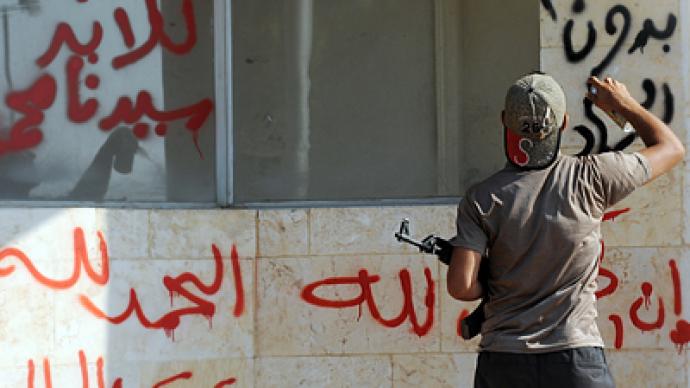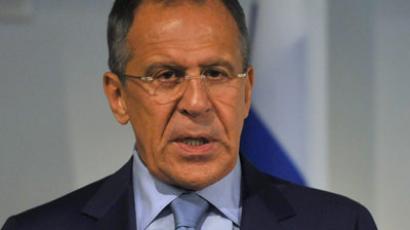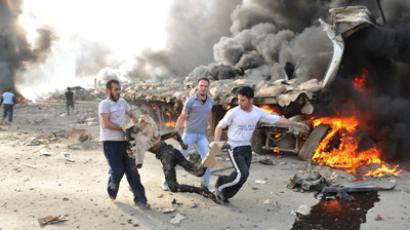Tomorrow’s foes? Syrian rebels fear foreign Islamist fighters are ‘too extreme’

The civil conflict in Syria has brought Islamists from all over the world to the Arab country to help their brothers topple the “apostate regime”. But will the foreign allies lay down arms if Assad goes? Syrian rebels are starting to fear they won’t.
“They are too extreme, they want to blow up any symbol of the state, even schools,” Abu Bakr, a Syrian rebel commander, told Reuters Concern is growing despite the obvious benefits the influx of foreigners brings to groups who have been fighting to oust the government of President Bashar Al-Assad for 17 months now. Streaming into Syria, Islamists from many Muslim countries bring with them money, smuggled weapons and extensive fighting experience, a development that has given the amateur uprising the tactical and practical war craft it previously lacked. "They're extremely effective and secretive. They coordinate with us to attack the regime but they don't take orders from anyone. They get weapons and explosives smuggled from abroad that are much better," says Anwar, a rebel from Aleppo.The massive aid has made the Syrian rebels capable of withstanding the regular Syrian army and optimistic enough to turn down invitations to talks with officials in Damascus. "As bloody as it is now, this stage is simple. We all have the same cause – to topple the regime,” says Abu Bakr. But what makes the rebels different from foreign Islamists is their understanding of where the limits of the conflict lie."Our goal is to make a new future, not to destroy everything," says Abu Bakr. “When Bashar falls, we may find a new battlefront against our former allies."There are fears that, although most Syrian rebels are fighting for an Islamic state, there will be no common understanding of what exactly this state should be, and that the civil war may become an all-out sectarian conflict.Syria’s Sunni rebels who are fighting Assad’s Alawites, an offshoot of Shia Islam, are becoming intermingled with battle-hardened militants from Afghanistan and Pakistan, citizens of the Persian Gulf states, rebels from Libya and sometimes even fighters with European passports. The rebels do not always admit foreigners to their ranks, but if they do, they face a clear necessity to moderate some outlooks. "We're trying to fold jihadis into our group so they back off their more aggressive tactics. That doesn't mean we aren't nervous. They could still turn and rebel against us," a fighter of the 2,000 strong Tawheed Brigade, the biggest opposition military unit operating in Aleppo, told Reuters.Adherents of Salafism and Wahhabism Sunni Islam branches, as well as idealist jihadists devotedly fighting for “oppressed Muslims”, are all present on the Syrian battlefield. With the millions of dollars flowing their way from the Gulf countries like Kuwait and Saudi Arabia, uncontrolled foreign fighter groups are fully autonomous and are capable of buying arms and explosives directly from abroad. "There are some really extremist battalions that don't cooperate well with us. They stay on their own," adds the fighter.Most Syrian rebels are young Sunni Muslims from poor rural areas of the country who don’t want to look much further than toppling President Bashar Assad. Some talk of a Sharia-law state, but only after some period of peace and stability. What most are talking about may sound way too moderate for their foreign aides: “a state where citizens are equal, Muslims and minorities,” or “a future not determined by poverty or religion.”In reality, the friendly shoulder of foreign fighters is starting to appear increasingly colder.














